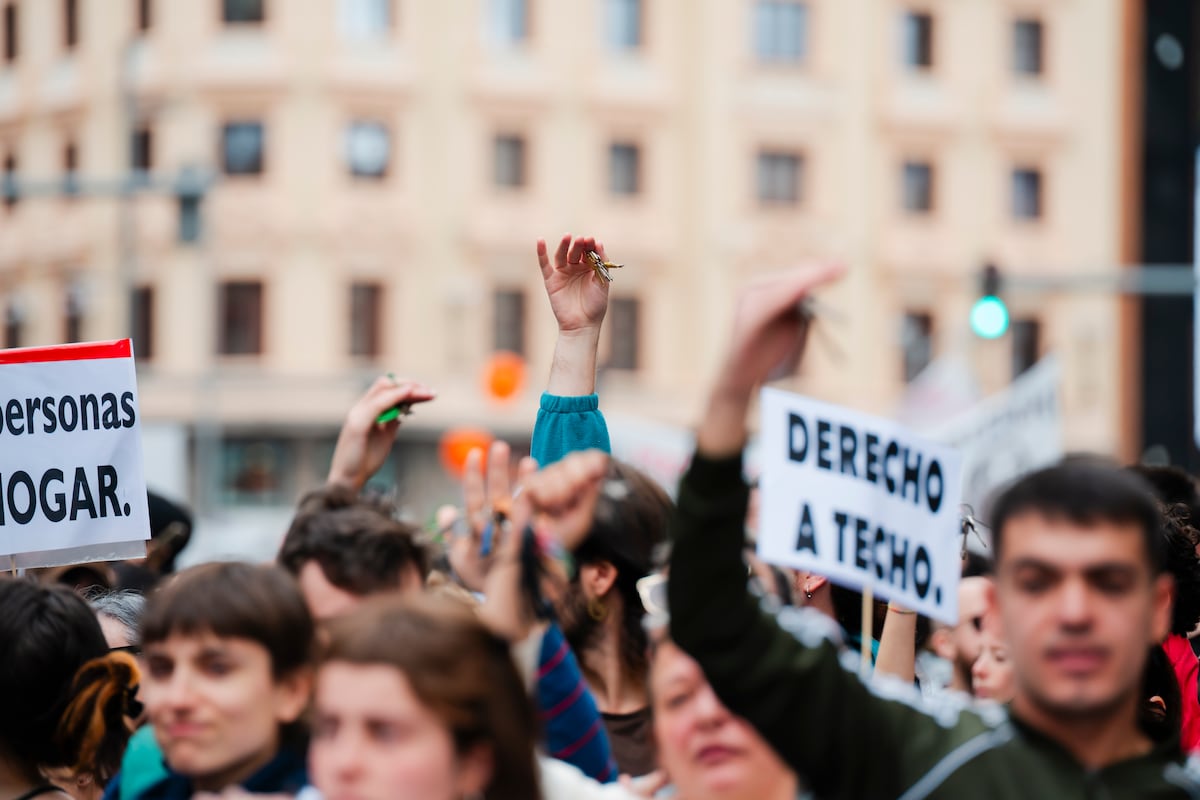The decline of the middle class is also hitting the left. Pedro Sánchez rode into power on a wave of political expectations, but seven years later, one must ask whether his economic rocket has truly transformed Spain’s economy. This left-leaning government has managed to alleviate the struggles of the most vulnerable, but it has failed to restore the ambitious dreams of improvement for the middle class. Immigration is another side of the government’s miracle.
According to data from the Bank of Spain, between 2022 and 2024, the average annual growth of GDP per capita (2.9%) was primarily driven by an increase in the number of people working. A quarter of that growth was due to migrant workers, who now occupy 40% of new jobs, according to Funcas. Less than half of these workers have a low level of education, and more than half are overqualified for the positions they hold. Thus, Spain’s growth is more due to the volume of workers than to an increase in productivity: in 2024, productivity only contributed 1.1% to GDP (3.2%). Looking at it historically, wages, adjusted for inflation, have been practically stagnant since 2008. Our standard of living has not changed significantly in nearly 20 years, although we now congratulate ourselves on having more workers, whether local or foreign.
This explains the cycle of frustrated expectations that the left has caused. Its debt, when the government changes, will still be owed to the old middle classes, now significantly eroded: more than two-thirds of the active population does not earn 30,000 euros gross per year. Our youth, the adults of tomorrow, are already internalizing this reality: we are witnessing a generation that expects to inherit—perhaps at age 50—as the only way to correct their precariousness. And even so, the worst inheritance we leave them is the normalization of their poverty. That is, the middle class was also defined by the ability to dream of a full or better life, not by being eternally dependent well into their forties.
Of course, not everything is the fault of the current administration: there are structural factors that condition our economy and cannot be resolved in seven years, especially without implementing deep reforms. It could be argued that Sánchez faced an inflationary cycle, partly mitigated by the European Union opening the spending tap this time. Now, those aids have only served to prevent people from becoming even poorer, unlike what happened during the 2011 austerity crisis, where mass layoffs were a daily occurrence. However, none of this has revived a generation with hope for a prosperous horizon.
The left’s debt to the old middle classes has become conceptual. Some may celebrate the macroeconomic data, despite insufficient wages to meet the cost of living—such as housing, which is skyrocketing—and others may wonder why progressivism seems resigned today to managing this precariousness—or stagnation of living standards—with palliatives. In this sense, our collective imagination has radically changed in 20 years. Before the 15-M movement, much of the left subscribed to the idea of social mobility, with aspirations of prosperity closely linked to the notion of personal freedom to choose a life project. Today, most speeches by the PSOE, Sumar, or Podemos revolve around promising citizens that, at least, the state will be able to rescue them if they fall into poverty. This refrain is becoming increasingly common as a way to normalize a hidden dependency scheme, far from the emancipation aspirations of yesteryear.
It is easier to recognize the government’s measures aimed at the most vulnerable classes than its efforts to recover a true middle class. Consider the increase in the minimum wage—not far from the most frequent salary—the extension of the minimum vital income, or protection against evictions. The government also assumes that two million people are not poor today because they have a pensioner in their household. There are even promises to reduce the workweek as a consolation prize against a material reality that is likely harsher and harder to reverse.
— new from EL PAÍS
